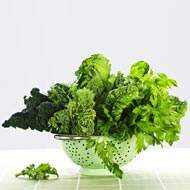- Ayurveda & Yoga Therapy
- Ancient Ayurveda Yoga Series
- Indian Ayurveda and Yoga
- Ayurveda & Yoga Meditation
- Hinduism, Yoga and Ayurveda
- Yoga & Ayurveda for Improving Flaccid Penis
- Ayurveda and Yoga Exercises for Beauty & Health
- Ayurveda Yoga Spirit
- Ayurvedic Massage, Medicines & Yoga Meditation
- Application of Yoga and Ayurveda in Stress Management
- Ayurvedic oils - Benefits and Uses
- Can Panchakarma Therapy Help Children?
- How can Ayurveda Oils enhance your wellbeing?
Yoga and Ayurvedic Cooking Tips
Ayurveda derives its knowledge of herbs, spices, vegetables, legumes, so on and so forth from Nature. This helps maintain optimum physical, mental, emotional and spiritual health. Ayurvedic foods are predominantly vegetarian, delicious, tasty and aromatic.
Besides, they are also a way of offering love, becoming healing when served. This is because everything is done in an inspiring manner. Here cleansing of toxins that have entered the body is main objective.
Hence, Ayurvedic cooking is, at the same time a science and an art. This is because, here cooking becomes alchemy and food becomes an offering.
In Ayurvedic cooking the basic principles are the 5 elements, the 3 humors (also called doshas in Sanskrit), the 3 attributes of nature (Gunas), the 7 bodily tissues (Dhatus) and the 6 tastes (Rasas). Ayurveda also attaches a lot of importance to the effect of cooking on the quality of food, the significance of the vibrations of the one preparing the food as well as the atmosphere, the compatibility of foods, the time of cooking and eating, the seasonal cycle and the effects of foods on our consciousness.
According to Yoga we eat to live, rather than live to eat. This doesn't mean our food has to be bland or insipid. In fact, if you think vegetarian means dull and insipid, you're in for a little surprise. So what does a yoga practitioner eat? Predominantly, Yogic cooking is vegetarian, by and large, consisting of fresh fruits and vegetables, beans and grains, nuts and seeds, and a moderate amount of dairy products. As a matter of fact, there are, literally, hundreds of dishes, that can be cooked healthily, tasty, and nutritiously. Cook up some spices and turn a plain vegetarian dish into a delicious Indian curry. Add or ginger and coconut milk for a enjoyable Thai meal. With delectable and mouth watering dishes, even stick-in-the-mud meat-eaters don't miss out ton meat.
It's settled then, you don't have to be vegetarian to practise Yoga.
However as one becomes more aware of one's body, one comes to realize that eating meat makes a person heavy. On the other hand, a vegetarian diet makes you feel light and energized. It's the feeling you get from practicing yoga. Just avoid the fried spring rolls and cheese dishes, they can make you put on the pounds.
The yoga diet is especially important if for those who wish to lift up their consciousness to higher levels where love and compassion for all living beings - including animals - is take n for granted.
True, switching to vegetarian Ayurveda Yoga cooking isn't all that easy. Then again, so long as you have tasty alternatives and you don't have to do it overnight, it's not all that touch. Start by cutting down on red meats and then slowly get rid of it from your diet. As you find other tasty, enjoyable vegetarian fare, you well slowly find yourself giving up poultry, fish, and eggs as well. Even curtailing your consumption of meat and fish somewhat will actually help you.
And, don't for a moment, have a fear about getting sufficient proteins. Vegetarian cooking contains heaps of proteins. This you get from legumes, grains, so on and so forth.



